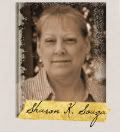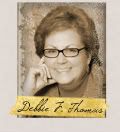 I recently sent an article to my agent, Janet Grant. It was about a type of book called “upmarket.” Since I had never heard the term, I thought I was giving her a heads-up to a new market trend. To my surprise, she replied, “Yeah, I heard this term at the San Francisco writers' conference in February; every editor was touting it.” And then she added,“So now you know how to talk about your novels...”
I recently sent an article to my agent, Janet Grant. It was about a type of book called “upmarket.” Since I had never heard the term, I thought I was giving her a heads-up to a new market trend. To my surprise, she replied, “Yeah, I heard this term at the San Francisco writers' conference in February; every editor was touting it.” And then she added,“So now you know how to talk about your novels...”So what is an upmarket book? Here’s a quote from the article I read by Chuck Sambuchino, an editor for Writer's Digest Books :
Simply put, it's fiction that blends the line between commercial and literary. To further examine this, let's break down those two terms. Commercial fiction, essentially, refers to novels that fall into a typical genre (thriller, let's say). Commercial fiction can sell very well because it usually has a tight premise/logline ("Someone is trying to kill the president!") and people like reading a category like thrillers because it's exciting. Literary fiction refers to novels that don't fit into any standard genre classification - romance, mystery, sci-fi, for example. Literary fiction requires the highest command of the language. Not pretentious, over-the-top purple prose - just simply excellent writing. . .
It has commercial potential. It has the ability to infiltrate lots of book clubs and start discussions and take off as a product. It's a win-win for everyone. I've heard a lot of agents say that they are looking for "literary fiction with a commercial appeal," or something like that. Well, one word that does the job of those six is "upmarket," and that's why you hear it so much. If you're writing narrative nonfiction or upmarket fiction, chances are, there are a ton of agents out there willing to consider your work.
Some examples of upmarket fiction (just my opinion): Water for Elephants; Jodi Picoult's books; The Lovely Bones; Michael Chabon's books.
Read the whole article here:
I can say that each of us Novel Matters writers aspires to literary excellence. We all think that something worth saying is worth saying in a memorable way, reveling in words, using to the fullest extent the precision of language and the shared delight of unexpected insight. (Oh art, we do indeed love you..)
Francine Rivers has called our own Bonnie Grove “the Jodi Picoult of Christian fiction.” Sharon Souza's careful, penetrating descriptions of heartbreaking dilemmas and the people caught up with them are masterful. Katy Popa makes desert places into characters and embues the people she writes about – some exotic, some earthy, some everywoman – with something pungent, beyond words. And I know why both Debbie Thomas and Patti Hill were nominated for Christy Awards: Each of them befriends the reader and then takes them on an adventure of wonder, a landscape of words with luscious surprises.
What do you think of this concept, upmarket fiction? Who are you reading now who qualifies for this term?
























 When did I stop researching and start writing The Queen of Sleepy Eye? Honestly? I counted out the days to my deadline. Oh boy, that got me writing.
When did I stop researching and start writing The Queen of Sleepy Eye? Honestly? I counted out the days to my deadline. Oh boy, that got me writing.














